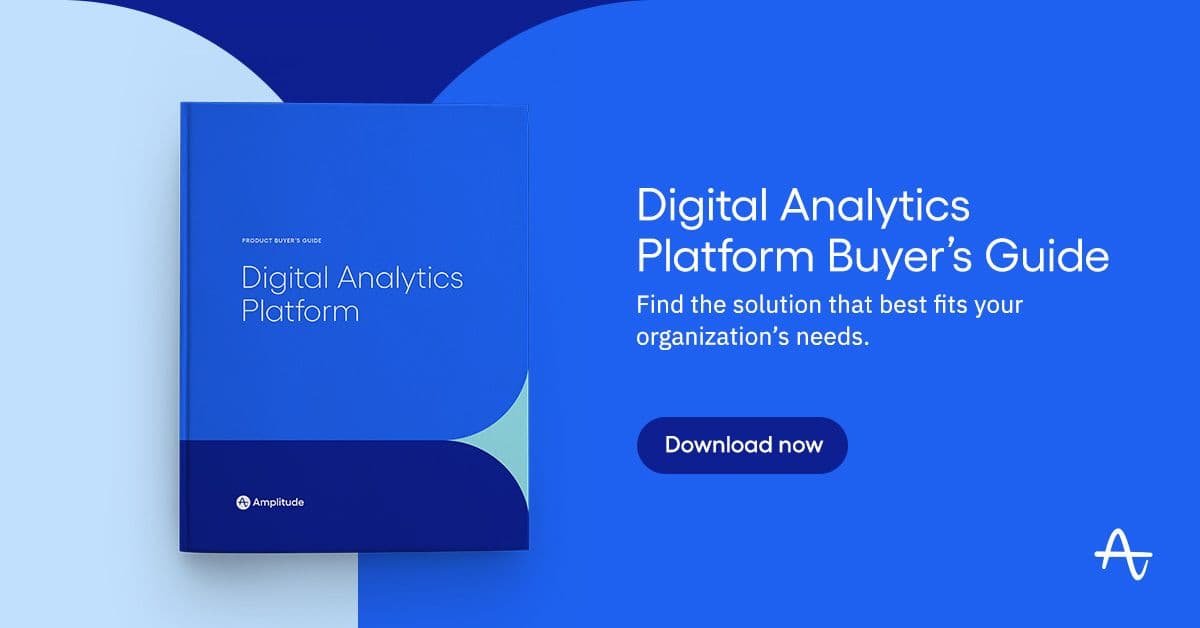How Do Product Teams View Amplitude vs. Google Analytics?
What did product folks tell us when we asked how Amplitude differed from Google Analytics?
I have spent much of my career in the digital marketing space. I worked in the Chicago Mercantile Exchange (CME) and Salesforce marketing departments, where part of my responsibilities included optimizing digital advertising spending. Marketing analytics products like Google and Adobe Analytics were pervasive and essential for digital marketers.
But now that I work at Amplitude, a digital analytics platform, I get a chance to speak to product teams in addition to marketers. In these conversations, I am amazed at how many product teams use Google Analytics to track the usage of their digital websites and applications. I often hear the frustration in their voices about using Google Analytics because they don’t feel it is the best tool for product teams. Sometimes they are told to use Google Analytics by their marketing team. Other times Google Analytics is used for cost-saving reasons (since there is a free version). This frustration has become louder ever since Google decided to abruptly sunset the current version of Google Analytics and force its customers to move to the new version (GA4).
As a product evangelist at Amplitude, I have the “how is Amplitude different from Google Analytics” conversation multiple times daily. While making a feature-by-feature comparison is easy, it’s still difficult to holistically explain how a product analytics product like Amplitude differs from a marketing analytics product like Google Analytics. This comparison gets even more complicated as Google Analytics attempts to go beyond marketing analytics. It is similar to trying to explain the difference between product and marketing analytics.
To help with this dilemma, I turned to my fellow product evangelist John Cutler. John has a massive following in the product world due to his prolific content creation. So I asked John to post this question to his LinkedIn audience:
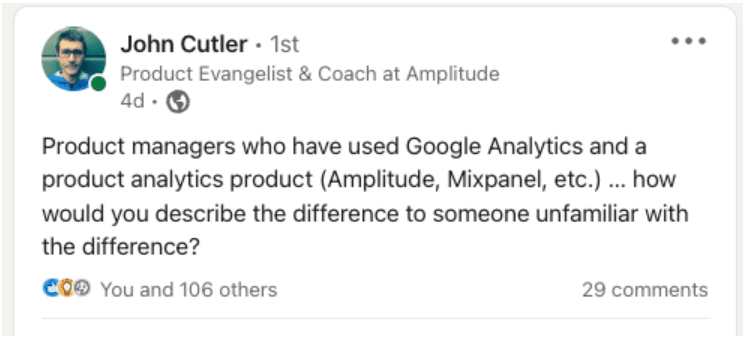
It’s always fun to throw a question out there and see what you get. In this case, John received many interesting replies. Most replies focused on the differences between how marketers and product teams view the world.
For example, Mangesh Chaudhari stated the following:
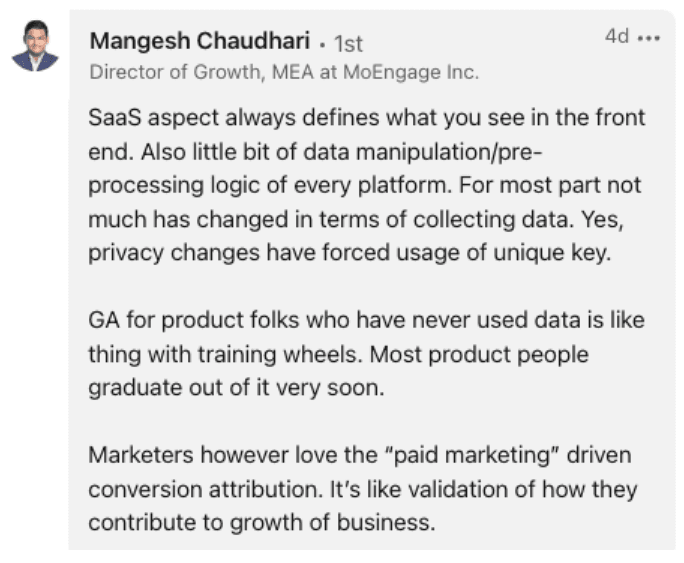
Here you can see that Mangesh believes that marketers use Google Analytics to prove the value of paid marketing/advertising. That makes sense since one of the reasons Google originally acquired Urchin (predecessor to GA) was to help marketers compute return on ad spend so they would buy more ads with Google! The importance of viewing advertising performance is why Amplitude has been investing in similar marketing analytics features to complement our robust product analytics features. But Mangesh also points out that product teams, which focus much more on users, engagement, and retention, will likely outgrow Google Analytics since it is much more slanted towards marketing than product requirements.
This general theme continued with comments from Kranthi Kiran:
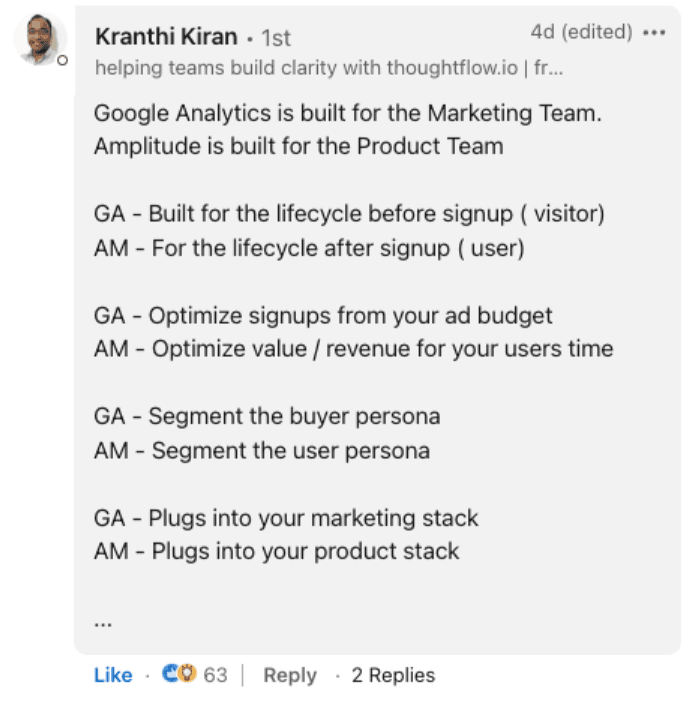
Here you can see the same marketing/product team split in more detail. Kranthi calls out some common differences we hear around the customer journey. Google Analytics has spent over a decade focusing on the buyer persona and helping firms optimize marketing. Conversely, Amplitude has spent this time focusing on what customers do once they engage with digital products. You can see these distinctions in the examples provided by Kranthi.
At Amplitude, we believe that tracking the product experience is the most challenging aspect of digital analytics. If you imagine an iceberg with 10% of its structure above and 90% below, marketing analytics often accounts for the most visible 10%, and product analytics represents what is below the surface. We believe it will be difficult for marketing analytics vendors like Google Analytics to deliver comprehensive product analytics functionality based on how much work Amplitude has put into product analytics functionality over the past decade:
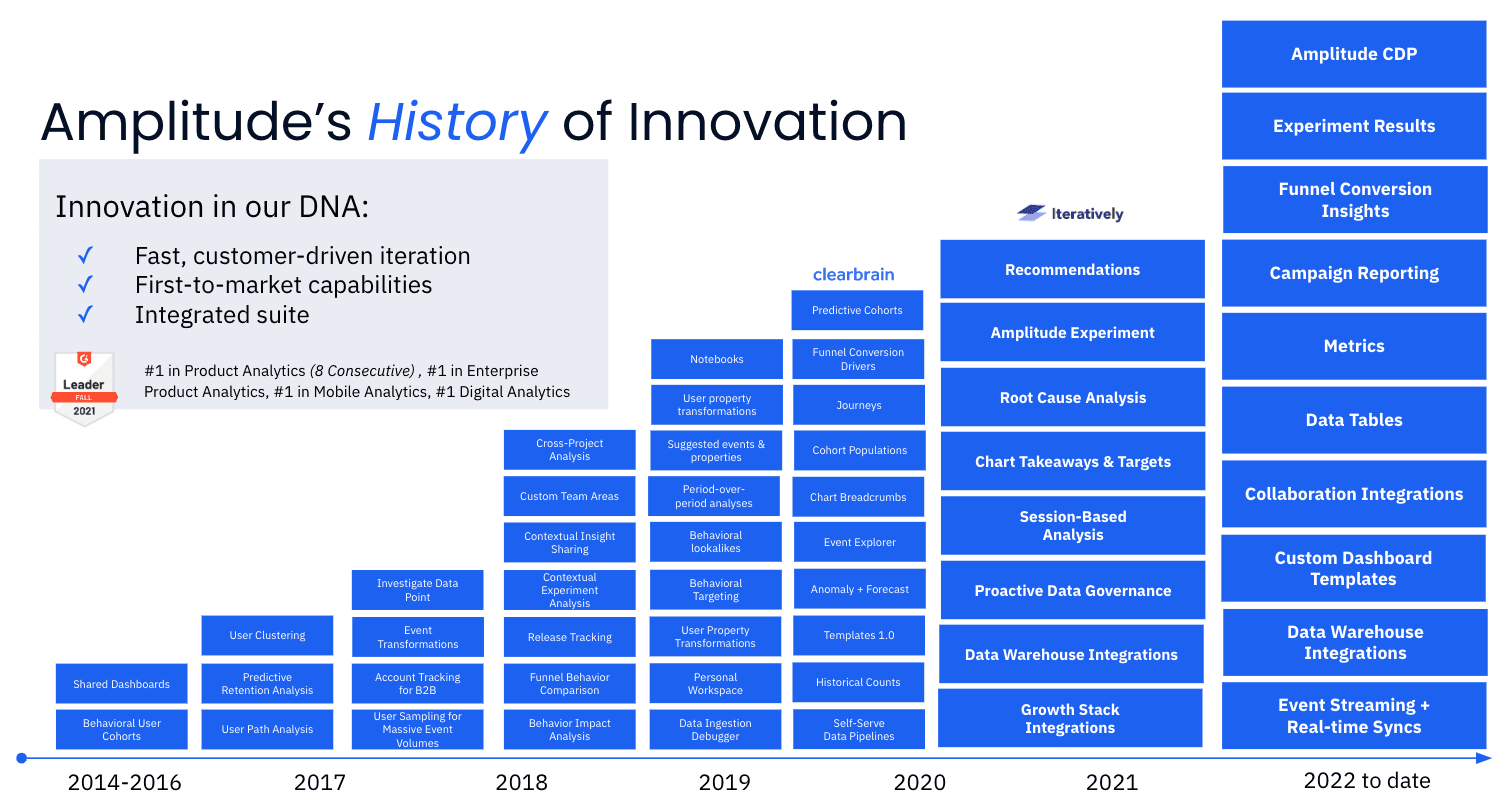
However, we believe that there is a smaller number of features needed in the area of marketing analytics. This is why we have been adding the most-requested marketing features to our product in hopes that Amplitude can become a platform used by marketing and product teams. We believe that product and marketing teams need to increase collaboration and that there will be a convergence of digital analytics technologies over the next few years.
The next set of responses zeroed in on the differences between conversion and retention. David Grandes put it this way:
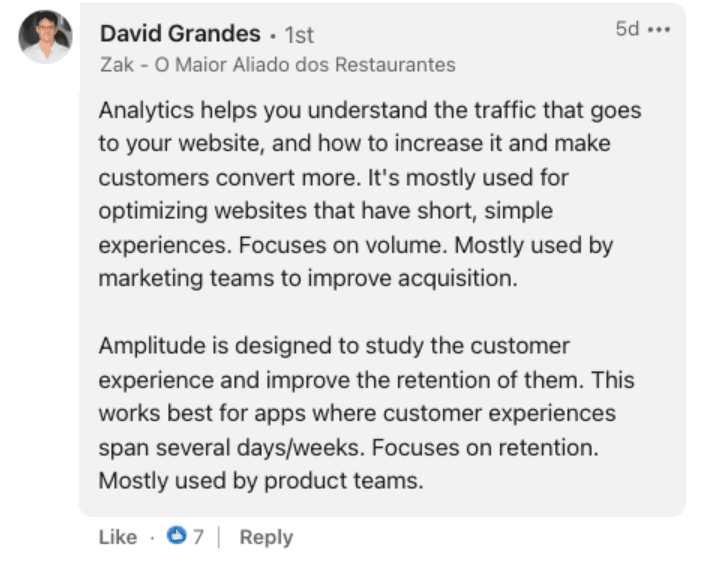
In a similar but more abbreviated response, Bryant Schuck put it this way:

This response from Konstantin Lobov is similar and to the point:
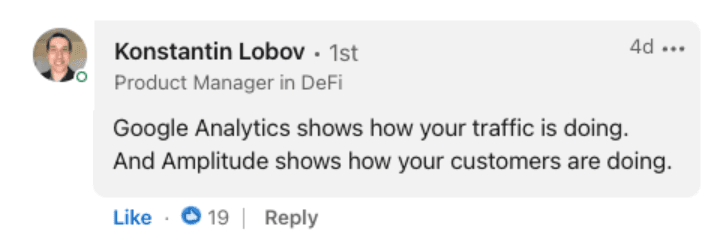
These responses allude to the fact that Google Analytics was primarily built for websites, while Amplitude was created for applications. I have argued that websites are getting more and more complex and, as such, should be treated as digital products/apps. You need deep product analytics insights to get customers to engage with your digital apps to see what is working and what is not. Product teams continuously improve apps by building personas, running experiments, and seeing detailed event flows. Amplitude has been the leader in product analytics for years because we help organizations build better products!
But my favorite response was this simple one from Ross Jones:

Simple, clear, and to the point. My only hope is that with our new marketing analytics features, Ross will soon say, “Amplitude is how you acquire users and keep them!”
I want to thank John Cutler for posing this question and all of those who replied. We love getting customer and industry feedback!
P.S. For those looking for an excuse to move away from Google Analytics, feel free to reach out to Lasse Lumiaho!


Adam Greco
Former Product Evangelist, Amplitude
Adam Greco is one of the leading voices in the digital analytics industry. Over the past 20 years, Adam has advised hundreds of organizations on analytics best practices and has authored over 300 blogs and one book related to analytics. Adam is a frequent speaker at analytics conferences and has served on the board of the Digital Analytics Association.
More from Adam

